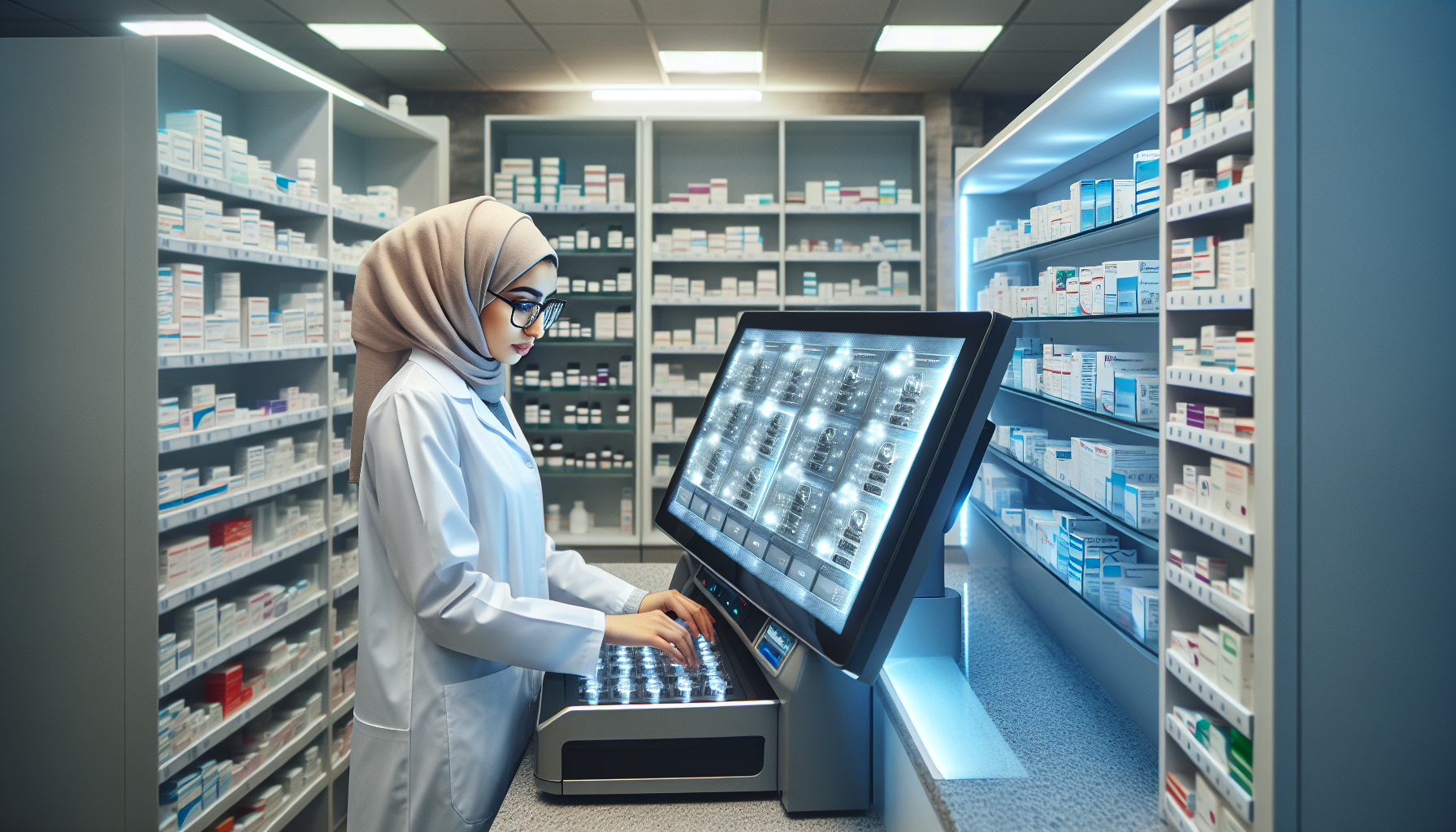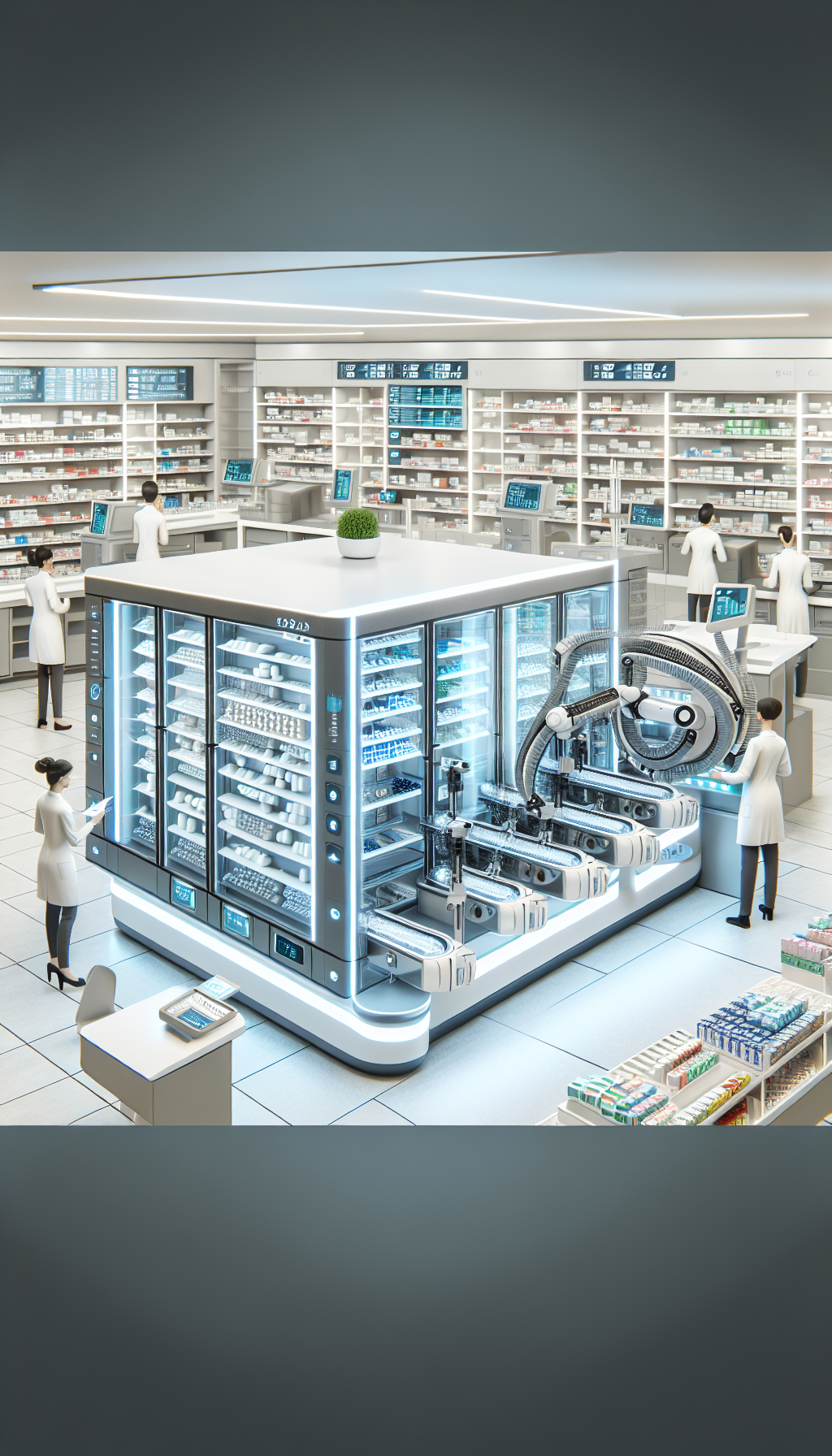In an era where precision and personalization reign supreme in healthcare, drug dispensing technology has become a cornerstone in modern pharmacies. This innovative technology has revolutionized the way pharmacists manage and dispense medications, leading to improved patient outcomes, enhanced efficiency, and reduced medication errors. As we dive into the multifaceted benefits of drug dispensing technology, we will explore how it complements the intricate network of patient care, particularly in areas such as medication and supplements, which are integral to managing health conditions effectively.
Enhanced Accuracy and Safety
One of the primary advantages of drug dispensing technology is the significant reduction in the margin of error during the medication dispensing process. Traditional methods of dispensing medications relied heavily on manual processes, which were susceptible to human error. With the integration of automated systems, pharmacies have witnessed a drastic decrease in prescription errors, directly impacting patient safety. The precision of drug dispensing technology ensures that patients receive the correct medication at the correct dosage, thereby mitigating the risk of adverse drug events.
Streamlined Workflow and Efficiency
The influx of patients with various prescription needs can be overwhelming for pharmacists. Drug dispensing technology streamlines the pharmacy workflow by automating repetitive tasks such as counting pills, labeling bottles, and processing insurance claims. This automation frees up valuable time for pharmacists, allowing them to focus more on patient care and consultation. By reducing the time spent on administrative tasks, pharmacies can cater to more patients, improve service delivery, and increase overall productivity.
Improved Patient Adherence
Patient adherence to prescribed medication regimens is a crucial component of effective healthcare. Drug dispensing technology aids in this aspect by offering various solutions, such as pre-packaged doses and timely refill reminders. These innovations simplify the medication-taking process for patients, especially those with chronic conditions or those taking multiple medications, making it easier to follow their healthcare provider’s instructions. Enhanced adherence leads to better health outcomes and reduces the likelihood of hospital readmissions due to medication non-compliance.
Inventory Management and Cost Savings
Pharmacies must manage their inventories efficiently to prevent overstocking or shortages of medications. Drug dispensing technology incorporates inventory management systems that track medication levels in real-time, alerting staff when it’s time to reorder. This precise inventory control helps pharmacies avoid the costly consequences of expired drugs and ensures that medications are always available when patients need them. Moreover, by optimizing inventory levels, pharmacies can reduce storage costs and waste, contributing to overall cost savings.
Data Security and Compliance
With the advent of drug dispensing technology, pharmacies now have robust systems to secure patient data and ensure compliance with regulatory standards. These systems are designed to protect sensitive information and maintain patient privacy, which is paramount in healthcare. In addition, technology solutions help pharmacies stay current with changing regulations, such as those related to controlled substances, by providing up-to-date information and compliance checks.
Integration with Health Systems
Drug dispensing technology does not function in isolation; it integrates seamlessly with electronic health records (EHRs) and other health systems. This integration facilitates the sharing of patient information among healthcare providers, ensuring that everyone involved in a patient’s care is on the same page. For instance, when a pharmacist inputs information into the dispensing system, it can be instantly accessed by the patient’s physician, enhancing the coordination of care.
The Role of Pharmacogenetics
An emerging field that aligns closely with drug dispensing technology is pharmacogenetics, the study of how an individual’s genetic makeup affects their response to drugs. As pharmacies begin to incorporate pharmacogenetic testing, they can use drug dispensing technology to tailor medications to a patient’s genetic profile. This personalized approach to medicine has the potential to improve treatment outcomes and minimize the risk of adverse drug reactions.
Addressing Medication Errors and Patient Care
While drug dispensing technology has made strides in improving pharmacy operations, it also plays a critical role in addressing medication errors and enhancing patient care. Through advanced features like barcode scanning and electronic verification, these systems ensure that the right patient receives the right medication at the right time. Furthermore, the technology supports pharmacists in conducting medication reviews, a vital service that assesses a patient’s medication regimen for potential interactions, duplications, or other issues.
The Future of Pharmacy and Patient Health
As we look to the future, the role of drug dispensing technology in pharmacies will only grow more critical. The integration of artificial intelligence and machine learning algorithms promises to further refine the capabilities of these systems, leading to even greater benefits for both pharmacists and patients.
External Resources Supporting Drug Dispensing Technology
To further understand the impact of drug dispensing technology, here are some niche resources that delve into its applications and outcomes:
- A study on automated dispensing systems improving medication safety in community pharmacies.
- Research on the effectiveness of pharmacy automation and robotics in enhancing the accuracy of dispensing.
- An analysis of pharmacy information systems and their role in advancing pharmacy practice.
- Insights into the impact of automation on pharmacy staffing and workflow.
Conclusion
The implementation of drug dispensing technology in pharmacies represents a significant leap forward in patient care and pharmacy management. From bolstering safety and accuracy to optimizing workflows and enhancing patient adherence, the advantages of this technology are clear and far-reaching. As the healthcare industry continues to evolve, drug dispensing technology will remain a key player in delivering efficient, personalized, and high-quality care to patients around the globe.



